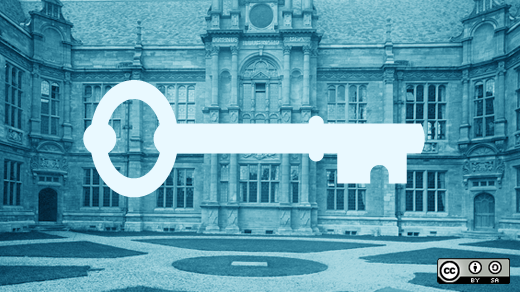Open education innovator Sal Khan, MIT alumnus and founder of Khan Academy, gave the commencement address at MIT graduation ceremony on June 8, a speech that included both a nod to the power of open education as exemplified by MIT's OpenCourseWare program and Khan's own web site, and an homage to the importance of the unique academic community that is MIT.
Khan spoke eloquently of the inspiration he drew from MIT's 2001 announcement to make all of its courseware openly available on the web. "MIT announced ... that it was going to take knowledge and resources that used to be behind the wall of elite institutions and not charge for them but give them away for free to the world ... When I read that press release, I had never been so inspired. I had never been more proud to come from this community."
At a time when many are wondering if open education efforts such as Khan Academy and the recently-announced MITx spell the end of the traditional university, Khan argued strongly for the value of the shared experience of the academic community. "[The MIT environment] pushes us. And I do believe that MIT pushes us harder that probably any other institution in the world. But when you do that, you take someone to another level, you take them truly to recognize to what they are capable of."
As is appropriate for an academic event, Khan also invited the graduates to participate in a series of thought experiments, projecting themselves into the perspectives of others in their lives, and imagining themselves at 70, looking back upon their lives and careers, and asked them to imagine from those perspectives they might do differently. "You...start to think about the things you might have done differently, your regrets. And I can imagine what they might be. You'll wish that you had spent more time with your children. You'll wish that you has told you spouse 'I love you' more frequently. You'll wish that you had spent more time with your parents and told them how much you appreciated them before they passed away." He then extolled the graduates to do this while they could.
Khan's speech points to one of the key dilemmas open education poses to traditional universities. The intense academic environments of today's campuses create much of the open content upon which tomorrow's educational innovations will be built. MIT OpenCourseWare relies for its richness on the academic community at MIT, and it's hard to imagine a Khan Academy emerging without the immersion in academics that Sal Khan received at MIT and Harvard. And yet, these innovations threaten to supplant the very institutions that gave rise to them. Creating structures to manage the disruption brought about by open education and ensuring a role that maintains the vitality of our campus environments is the core challenge of the next generation of academic innovators.







6 Comments